-
Car Reviews
- All reviews
- Midsize SUVs
- Small cars
- Utes
- Small SUVs
- Large SUVs
- Large cars
- Sports SUVs
- Sports cars
- Vans
Latest reviews
- Car News
-
Car Comparisons
Latest comparisons
- Chasing Deals
Small-SUV buyers are spoilt for choice in Australia, and the Honda HR-V continues as one of the models offering a fuel-efficient hybrid.
The Japanese brand has given its smallest SUV its first major update since the third-generation model was released in 2021.
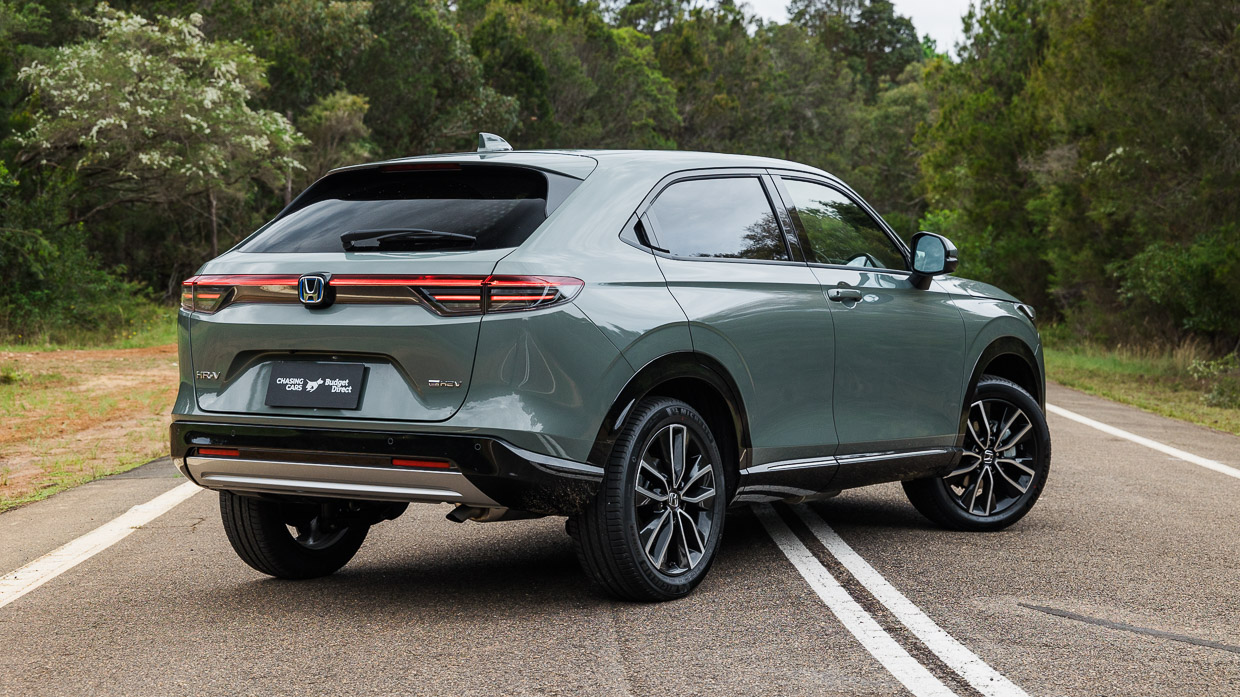
In a bid to lure more buyers away from a long list of more popular rivals – such as the MG ZS, Hyundai Kona, GWM Haval Jolion – Honda’s changes for the HR-V include sharpened pricing and a more affordable hybrid variant called the e-HEV X.
Our first time with the updated HR-V is the flagship e-HEV L, which now starts slightly lower at $42,900 driveaway (with some state variances).
In this review, we find out if Honda’s updates improve a package that already had its attractions, including fuel economy, decent boot capacity, and clever so-called ‘magic’ rear seats.
The range-topping HR-V e:HEV L is currently priced at $42,900 driveaway (depending on state), a $3000 premium over the new e-HEV X.
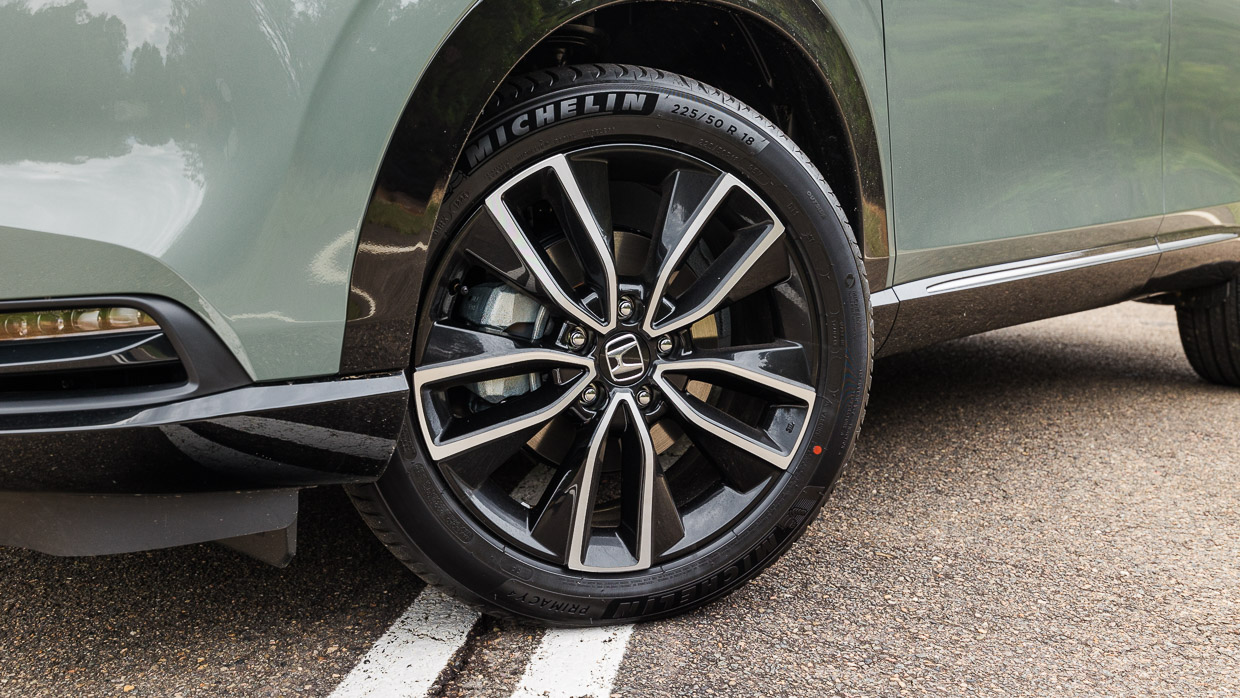
Standard features include:
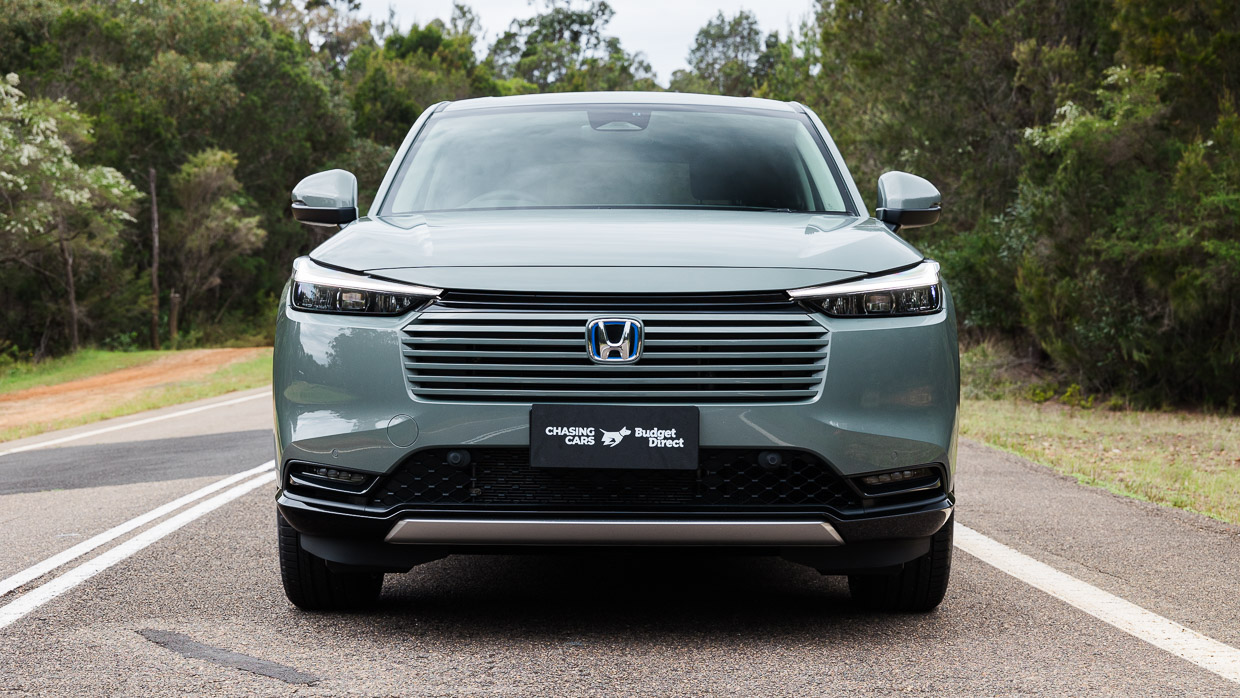
The HR-V’s 2024 updates include:
The Honda HR-V e-HEV L continues to miss some key features for a flagship model, still lacking electric seat adjustment and wireless phone charging, for example.
Can a hybrid small SUV be frugal but also fun to drive?
Setting off on my urban and highway road test loop, I found the HR-V to be remarkably quiet and refined. Of course, it’s a hybrid, it should be!
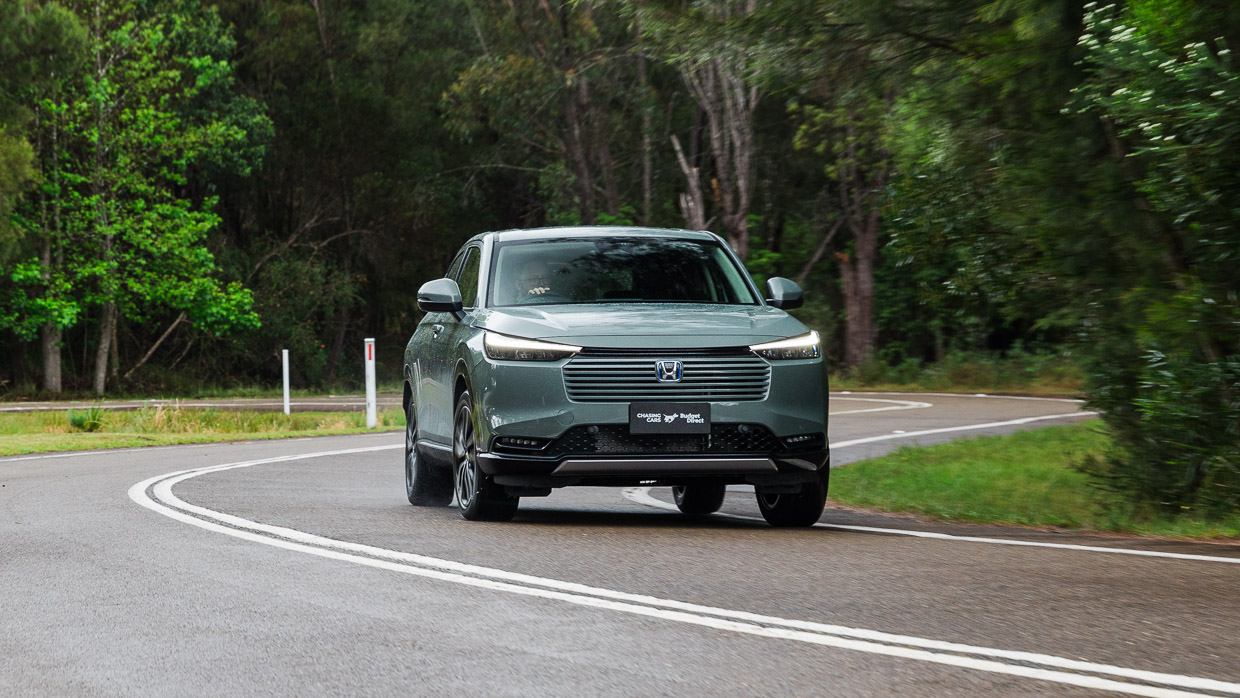
But the way the Honda does regular driving is very refined. To me, what sets apart a great hybrid system from a good hybrid system is the transition it makes from electric to combustion. And while the Honda doesn’t quite do that switch as well as Kia’s 1.6-litre hybrid system, it’s very close.
However, the transition is still gentle and smooth, so much so you can hardly tell whether or not it’s on electric or combustion.
Speaking of combustion, the e:HEV system used in this HR-V consists of a 1.5-litre Atkinson Cycle four-cylinder engine that is also mated to two electric motors, all of which sits on the front axle.
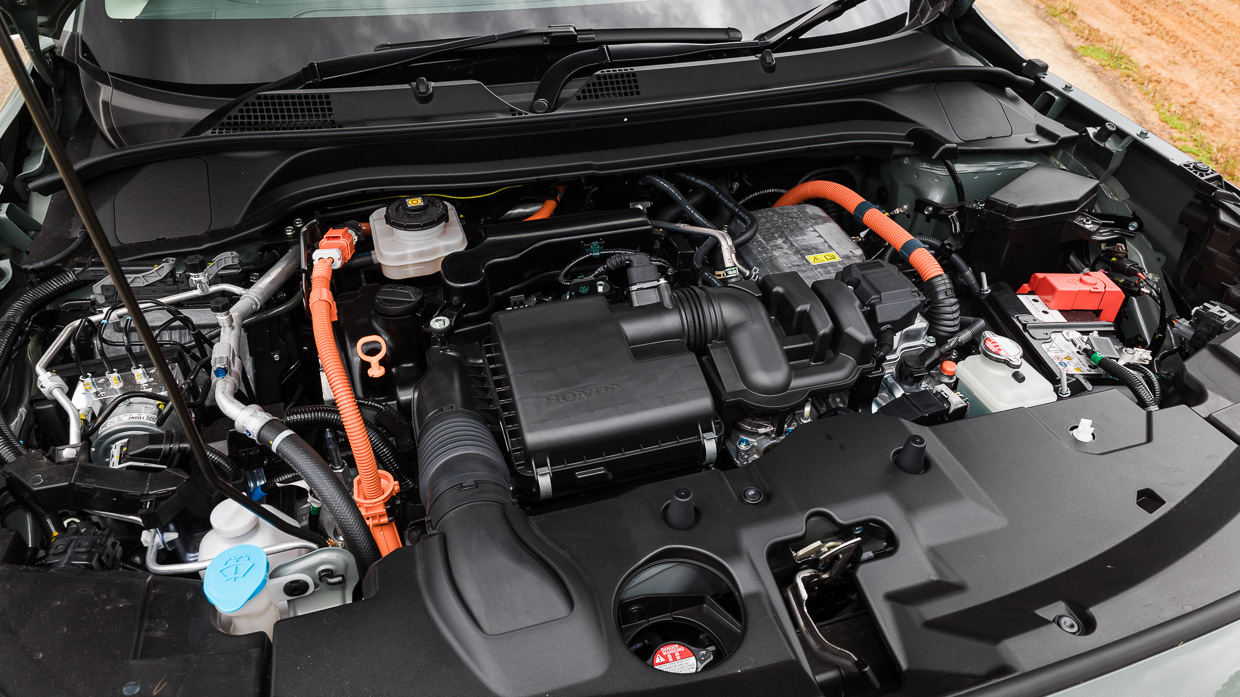
It’s a bit of a complex system to get your head around, but the basics of it are that the system allows either the electric motors or the combustion engine to power its front-wheel-drive setup.
The system is unlike Nissan’s E-Power hybrid tech, which does not have a physical connection between the ICE engine and the wheels. In the case of the Nissan, the engine acts only as a power generator for the electric motors.
Confused yet? Well, regardless of all that, there is still plenty of punch out of the Honda’s system, despite having relatively low system outputs of 96kW and 253Nm.
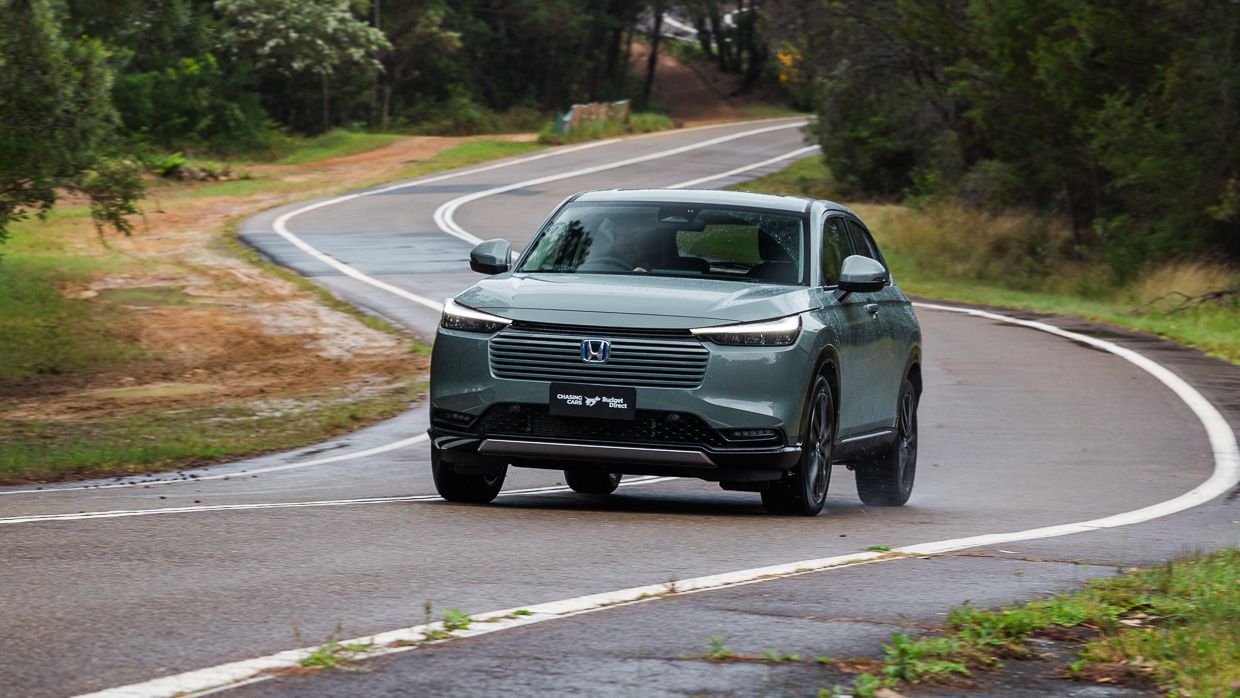
Around town, the HR-V is a very frugal thing, sipping away at the 40-litre fuel tank. The lowest economy we saw was 4.4L/100km combined.
I come back to the idea of fun. What makes a hybrid fun? The answer probably lies in the challenge of getting that fuel economy as low as possible and hearing the soft sounds of the electric system working beneath you. Hard to explain, but it’s rather enjoyable.
Honda’s hybrid system is a bit of an underdog. Most would move without thinking towards a Toyota hybrid system, but the truth of the matter is that this HR-V’s hybrid setup is a very good one and is, in my opinion, underrated.
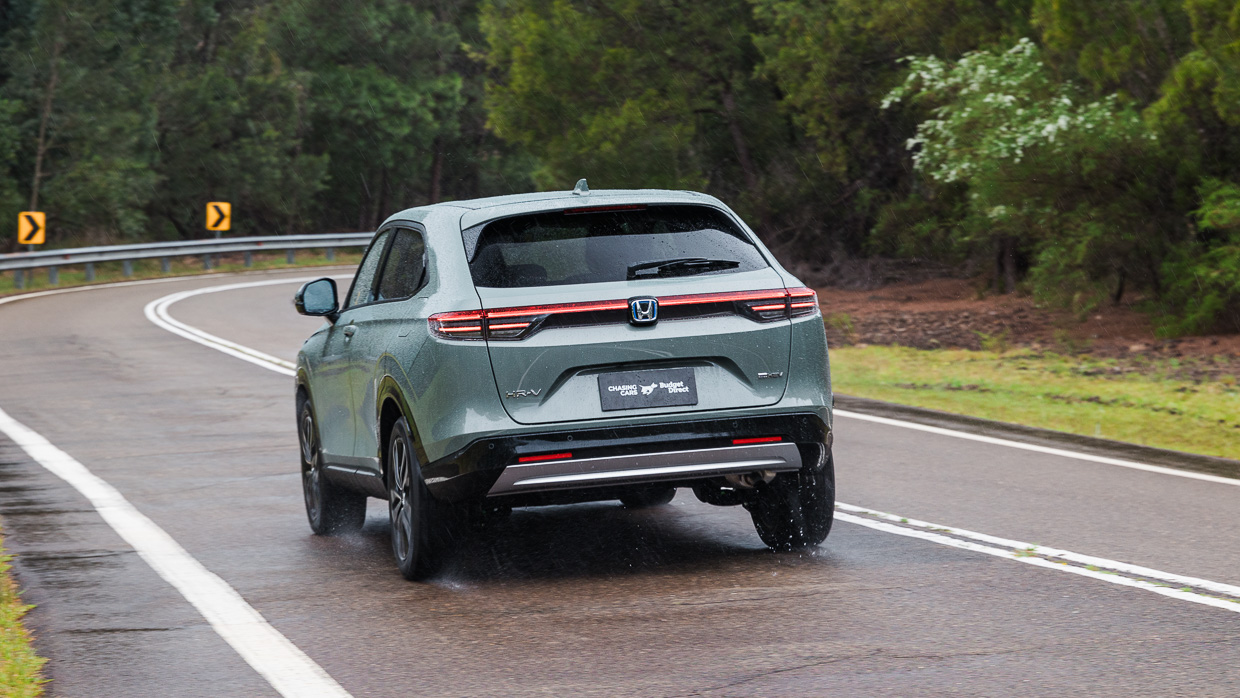
The HR-V is also comfortable and this is something not all small SUVs have in common. Honda has revised the suspension dampers for the 2024 update and it shows. It’s a softly sprung car this HR-V, soaking up the worst of the inner Sydney roads.
Despite being soft, it’s still fairly controlled over speed bumps for instance. And when you get the HR-V up and moving, it’s fun to scoot around in, especially around town.
To wrap up my thoughts on the HR-V’s driving experience, Honda’s small SUV became a very comfortable companion over my week of testing and commuting.
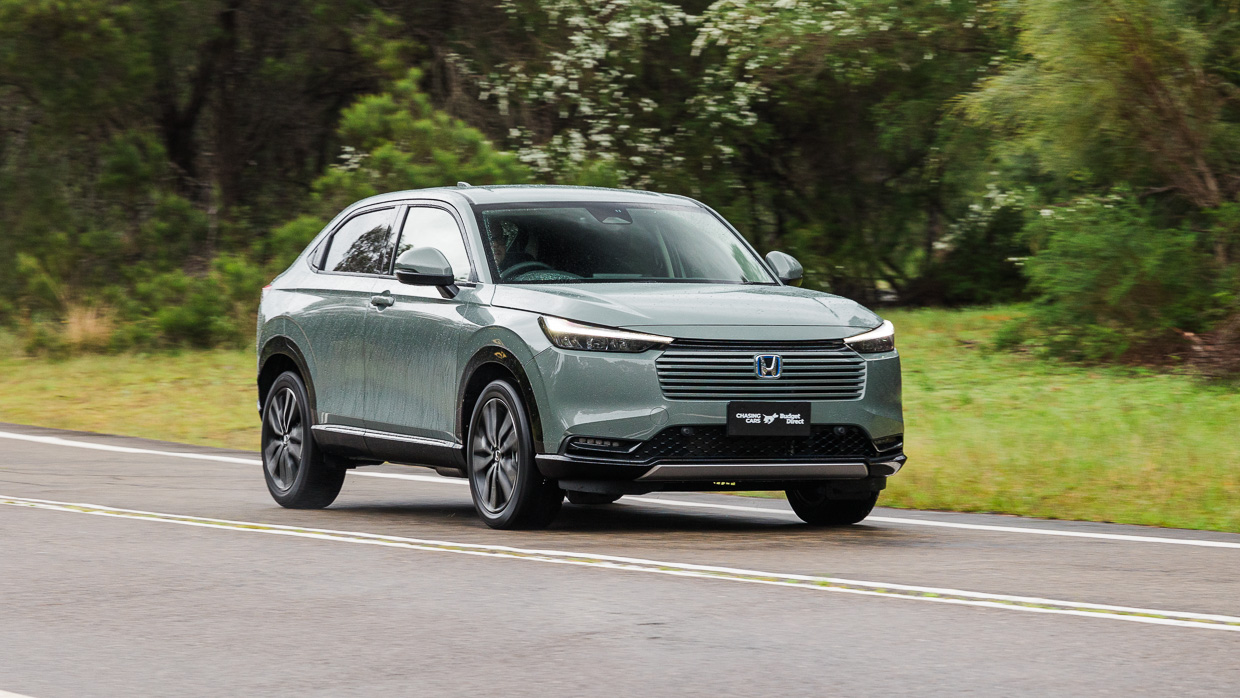
With solid ride quality, super quiet and refined hybrid system and its surprising fun-to-drive nature, the Honda is a charming, yet underrated driving package in the busy segment that is the small SUV segment.
Inside the top-spec HR-V L hybrid, what first comes to mind is build quality. I’ve had many Hondas join my family over the years and, after all, they have been very well put together. That theme continues in this HR-V.
While the HR-V won’t blow you away with fancy materials, what it does well is the fact that it’s built to last and has a great feel to it.
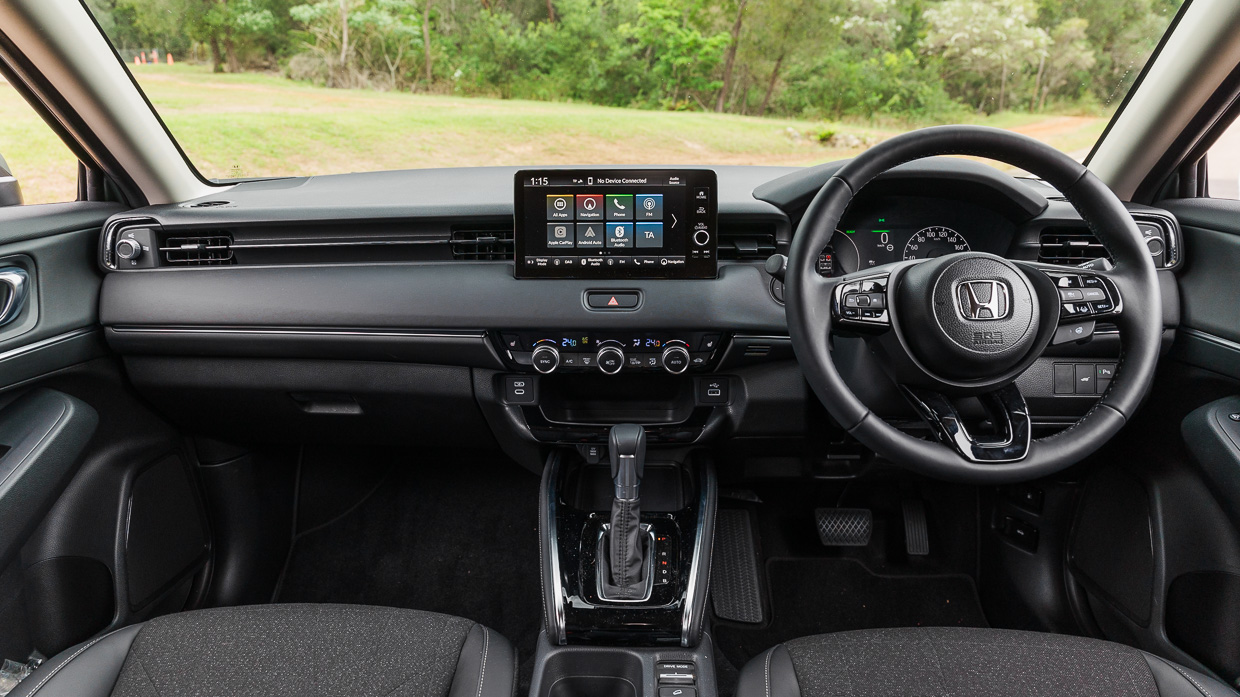
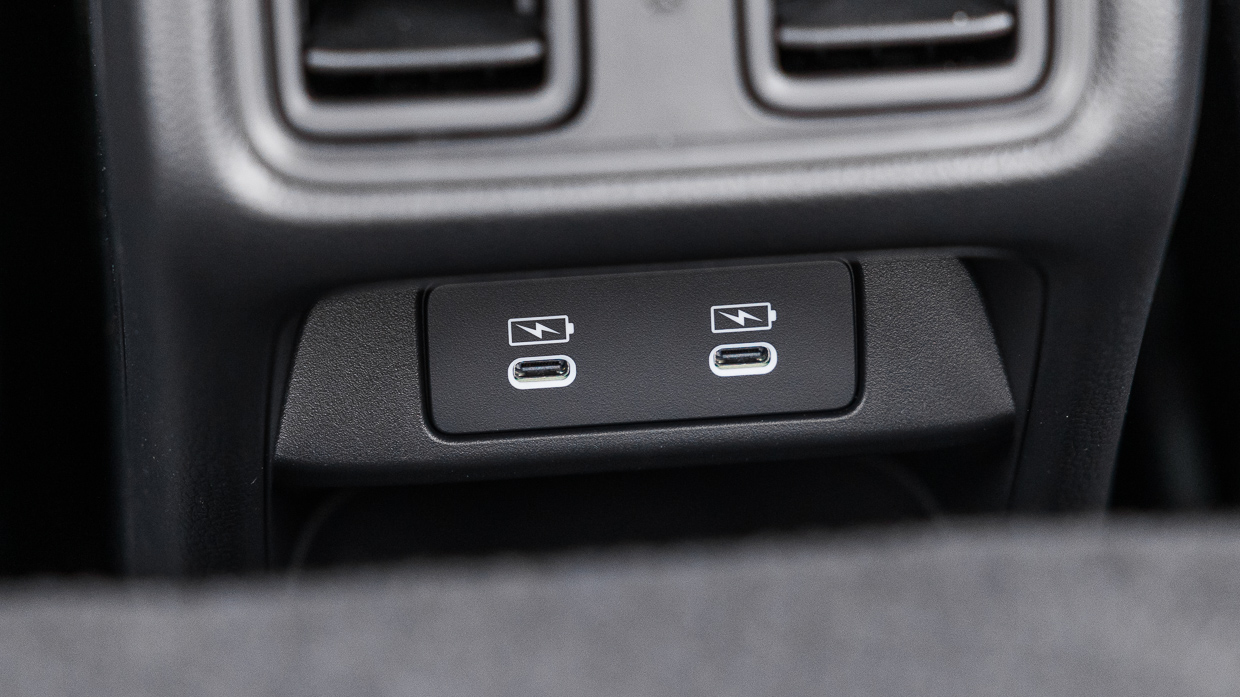
Materials choice and execution is very well done. There are very few scratchy plastics, apart from on the very top of the dash, but all the main touch points are soft, which is great.
A small but nevertheless important highlight is the soft material by your left knee which feels great to not be hard plastic. It overall made my driving experience more comfortable.
The HR-V’s front pews are a mix of fabric and black leatherette, but I think full leather seats should be standard for this flagship grade. The lack of electric seats is surprising, considering some rivals have them at this price.
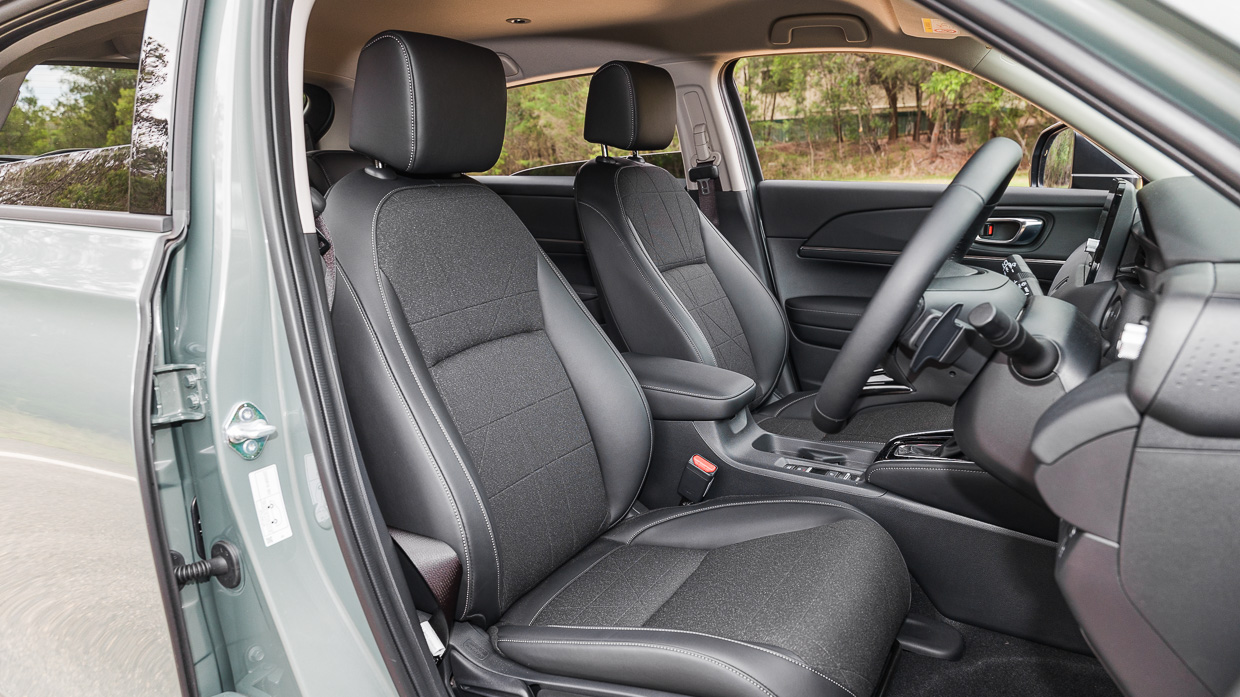
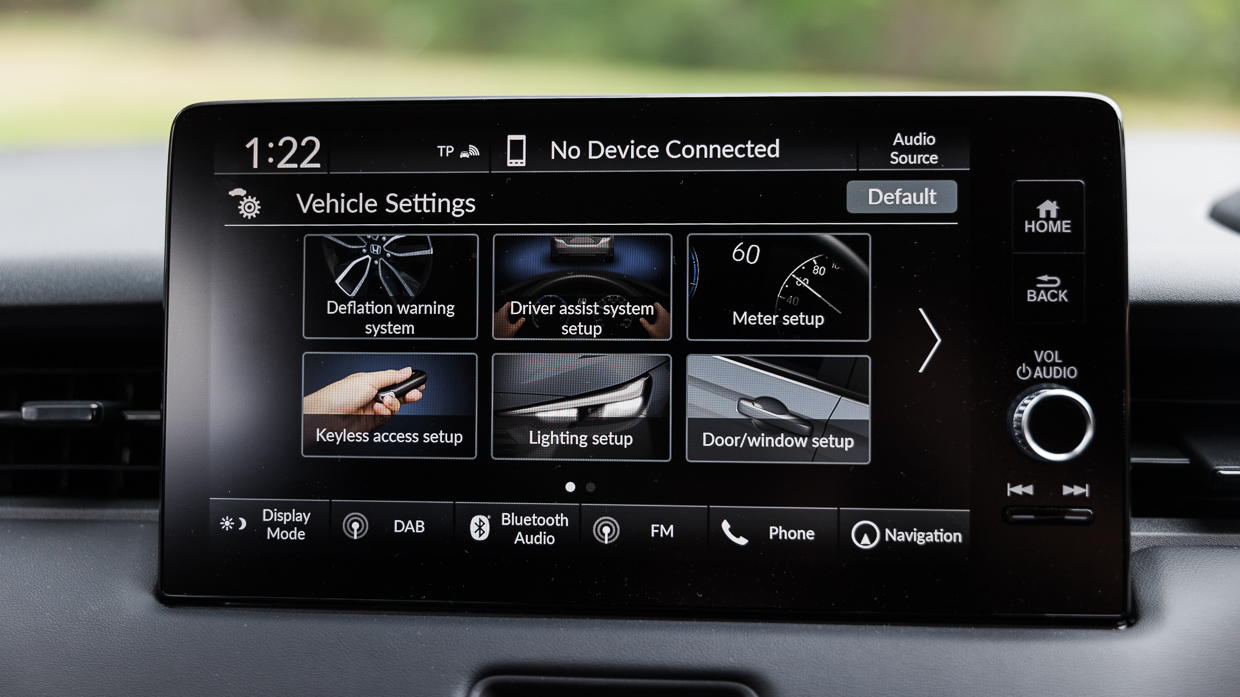
Despite the lack of leather, the seats are very comfortable and would be ideal for longer day trips.
I’m a big fan of the leather-upholstered steering wheel. It feels great to hold and use which is obviously important, because you’ll be using it quite often. But the quality of the leather feels noticeably better than some key rivals.
For technology, the HR-V uses a 9.0-inch central touchscreen that runs wireless Apple CarPlay and wired Android Auto. The screen is certainly high quality and is easy to navigate and operate. Apple CarPlay ran seamlessly and without fault or fuss.
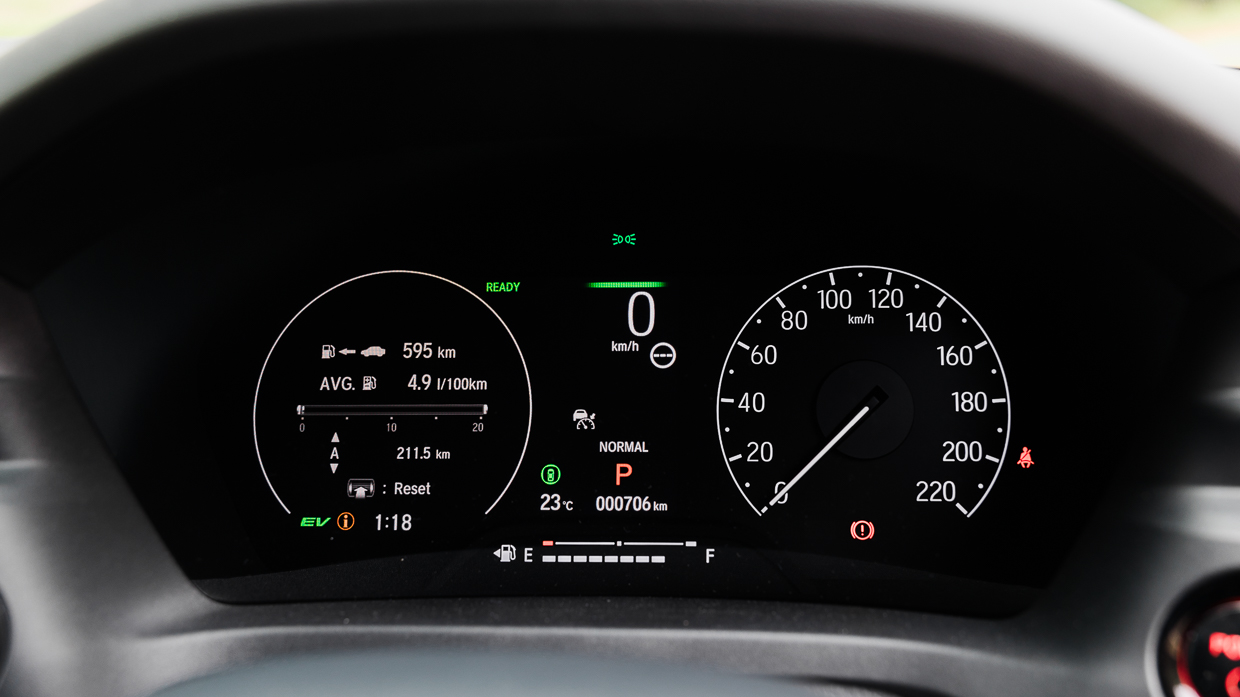
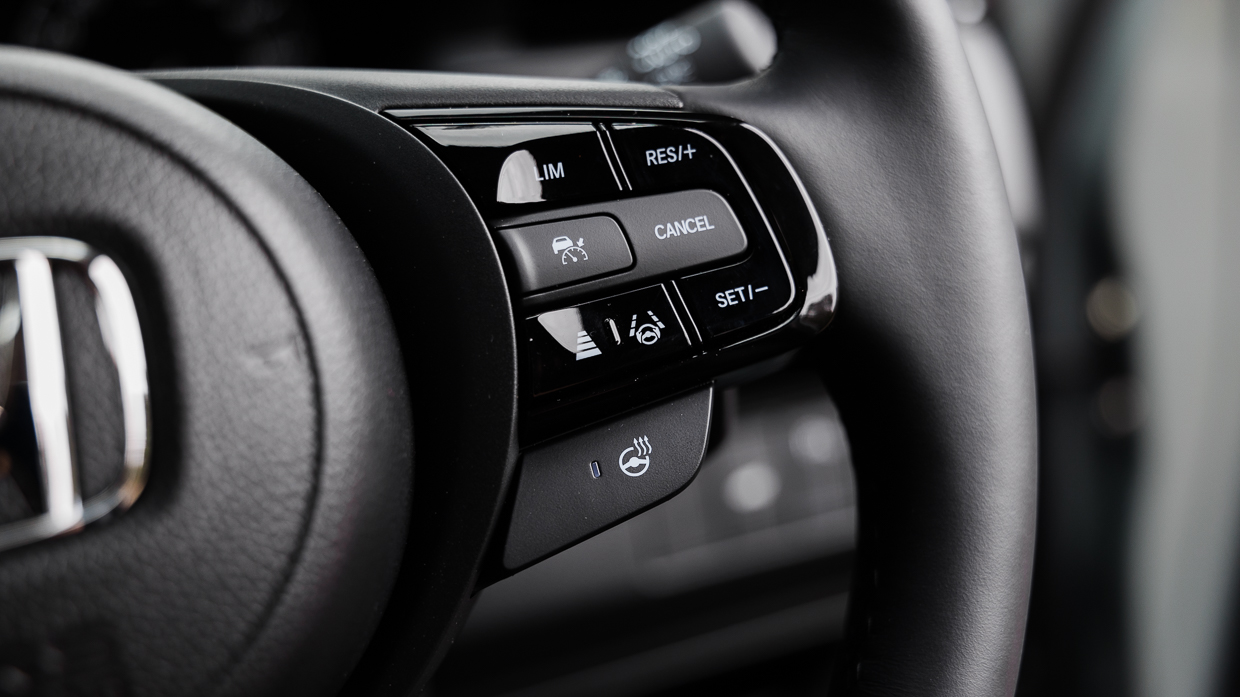
For the driver, a 7.0-inch digital instrument cluster is standard, but I wish it filled the whole cluster, rather than just one side of it. The CR-V RS Hybrid gains this full cluster, so I’m hoping the HR-V will get this feature in time.
Unlike some rivals, the instrument cluster works seamlessly with the multi-function steering wheel and, although I feel a little strange writing this, the buttons on the steering wheel are clearly marked with what they are.
The result is an experience that means you’re not checking the manual or pressing something you wished you didn’t. It’s the small things!
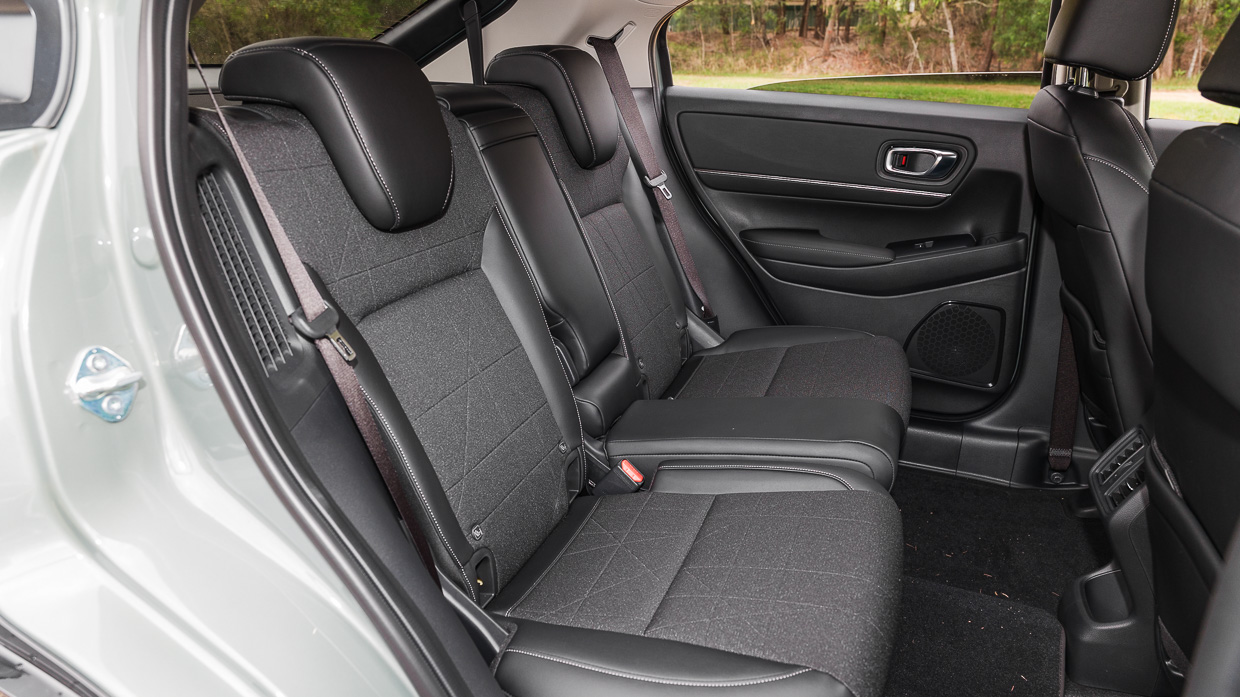
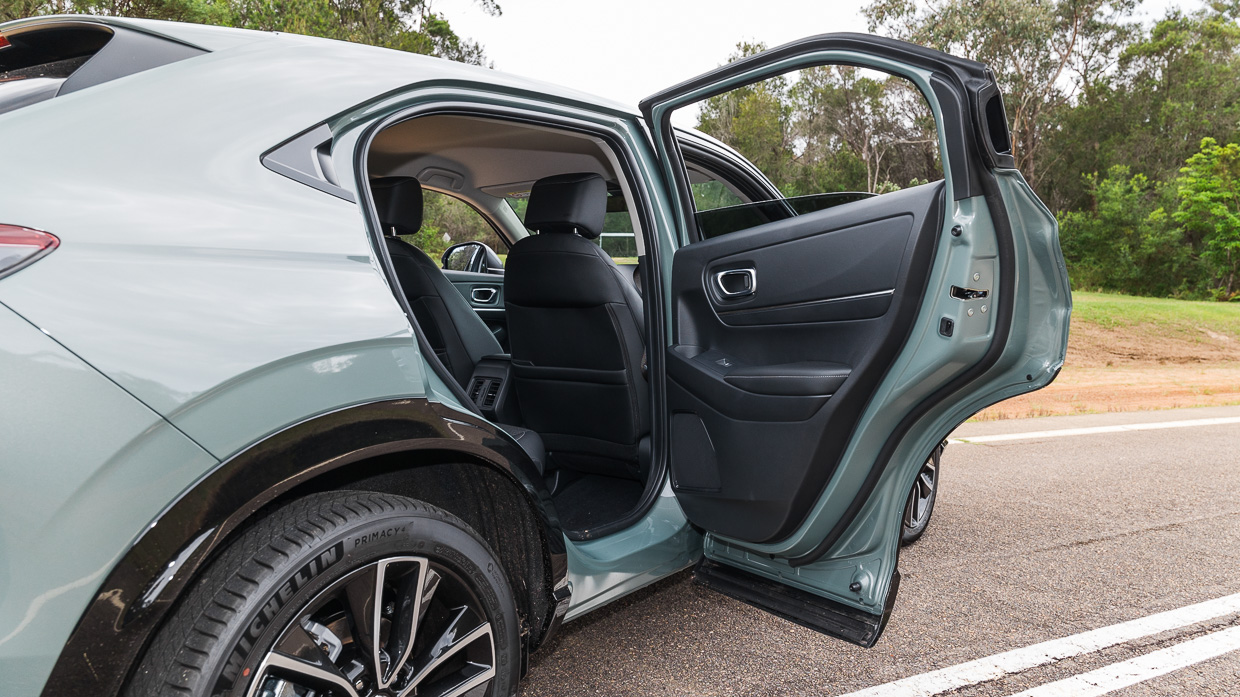
For the second row, occupants gain two USB-C charge ports, rear air vents, magazine pockets, a fold-down armrest with two cup holders and two additional bottle holders in the doors.
This HR-V is a deceptive car; while it looks small on the outside, it’s surprisingly spacious inside. Generous knee and toe room make for a comfortable second row, even with the driver’s seat in my regular position (I’m 178cm, for reference).
In the boot, the HR-V offers 304 litres of storage capacity, but with the marvellous creation that is Honda’s Magic seats, the second row folds completely flat and therefore offers a total load space of 1274 litres.
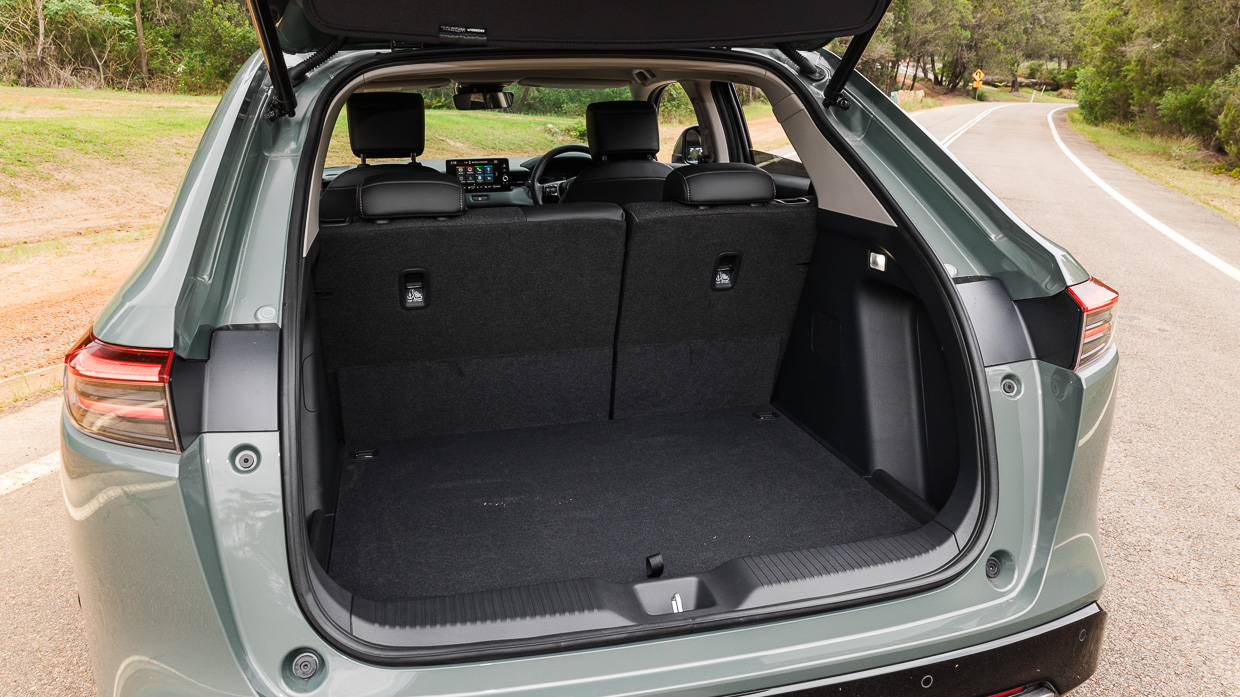
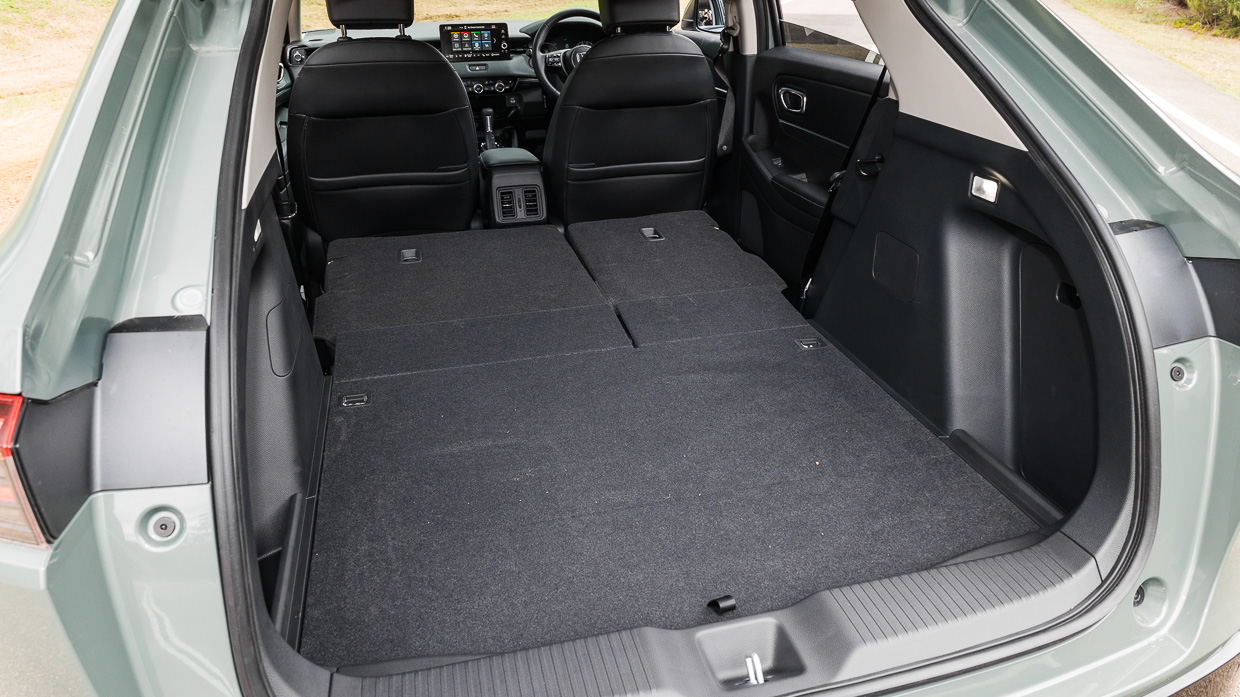
A somewhat annoying feature is the lack of a middle seatbelt in the second row, due to Honda choosing to not fit a top tether point for the middle seat. Four seats it is, then.
Another glaring omission is the lack of a spare tyre of any type for the HR-V. Instead, owners get a simple tyre goo kit. This is likely due to space required to house the HR-V’s hybrid battery pack.
To summarise, the HR-V offers plenty of practicality thanks to its Magic seat design and spacious second row, its appointment of standard features and solid technology for the outlay.
The Honda HR-V was tested by ANCAP in 2022 where it received a four star ANCAP rating, with 82 percent scored for adult occupant protection, 77 percent for child occupant protection and 69 percent for safety assist.
The lack of a centre airbag, no rear autonomous emergency braking back-over system, lack of driver monitoring and poor speed assistance systems were all reasons behind the four-star rating decision.
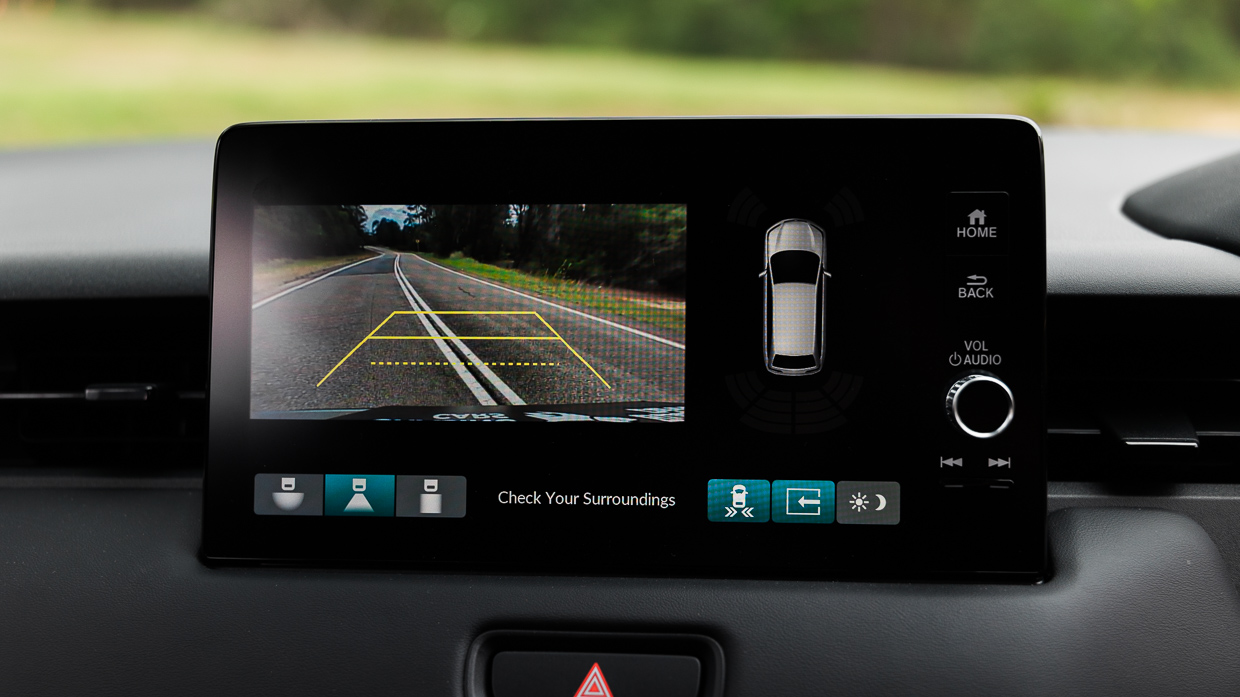
However, as standard, the HR-V is fitted with the following safety features:
As for real-world tuning, I found the HR-V’s safety systems to be very well tuned. Lane keep assist was gentle and very rarely alerted me or tugged at the wheel, which is rare in the Australian new car market today.
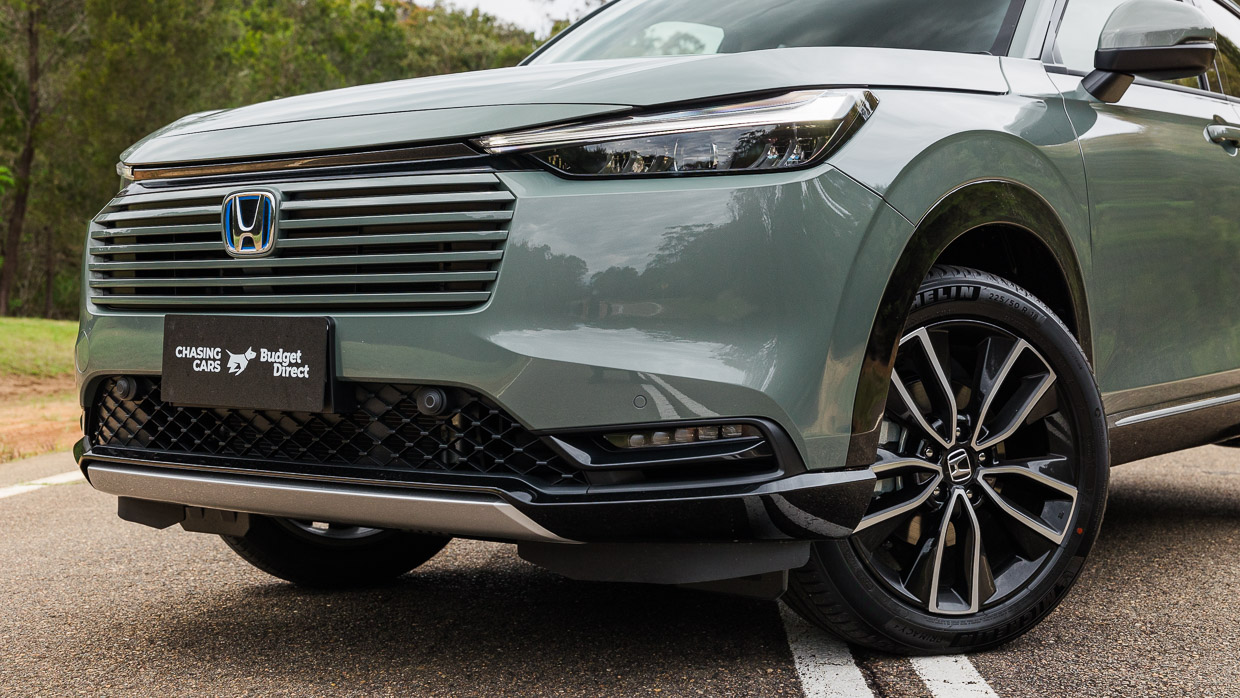
Honda has been able to tune its lane support systems successfully. I very much appreciate when car makers go above and beyond to make their vehicles work properly on Australian roads.
All new Honda HR-Vs come standard with the brand’s five-year, unlimited-kilometre warranty.
To service the HR-V, intervals are scheduled at every 12 months, or 10,000 kilometres, whichever happens to occur first. Servicing over five years is pretty reasonable and is priced currently at $995.
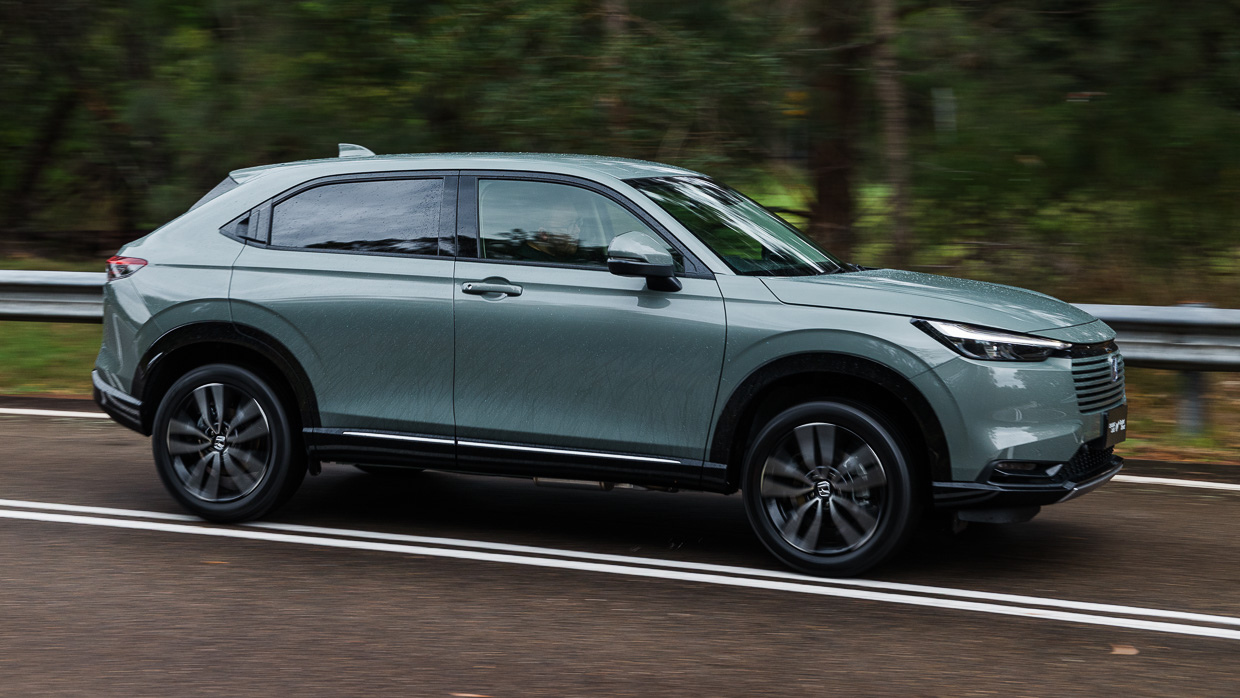
Honda Australia has an official combined fuel economy of 4.3L/100km for the hybrid variants of the HR-V. We travelled over 200 kilometres during our week of testing, with the lowest recorded economy being very close to claim at 4.4L/100km.
While this might not be the case for highway driving (we’ve seen 6.0L/100km+ with our former CR-V long-termer), the HR-V gets very close to the claim of one of its biggest rivals, the Toyota Corolla Cross Hybrid.
Fuelling the HR-V won’t be too much of a hassle due to the vehicle only needing standard 91-octane unleaded fuel.
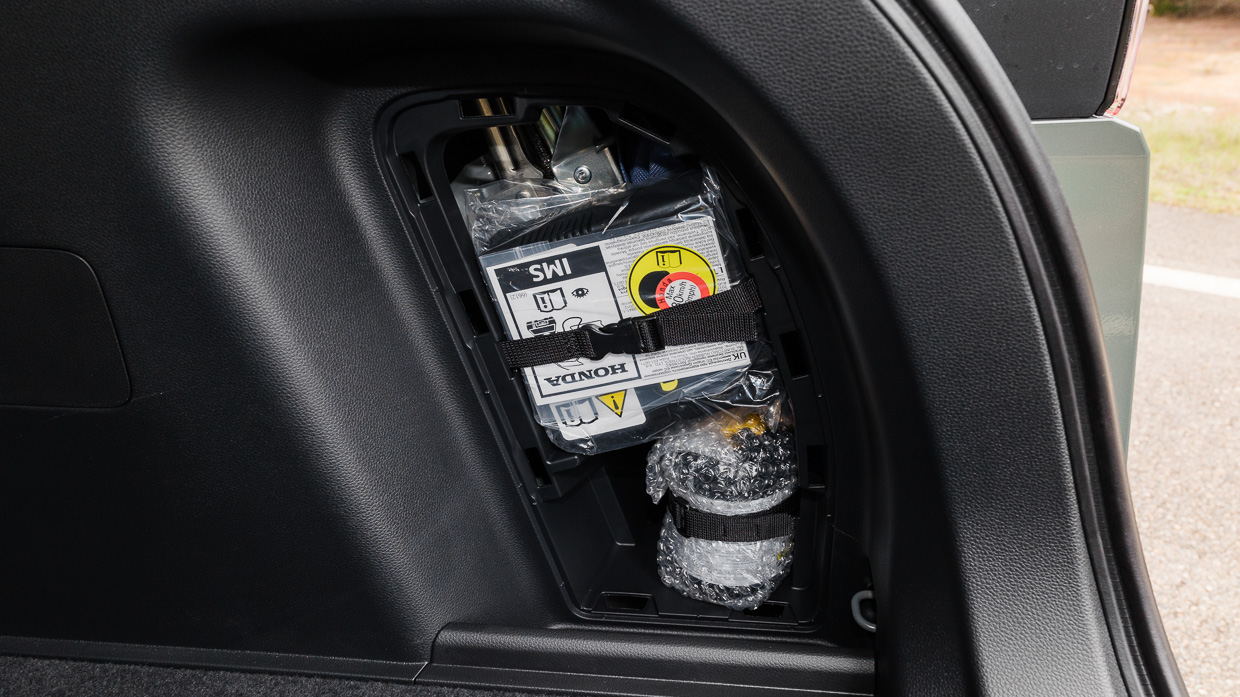
Fuel tank size is fairly small at just 40 litres, but with low fours for fuel economy, owners should get around 800km to 900km per tank. As mentioned above, there is no spare wheel, though Honda does fit an inflator kit.
For a moment, let me state the obvious: the Honda HR-V is not the best-selling small SUV in Australia. In 2023, that award went to the hugely-popular MG ZS.
But it’s also not all about the sales figures.
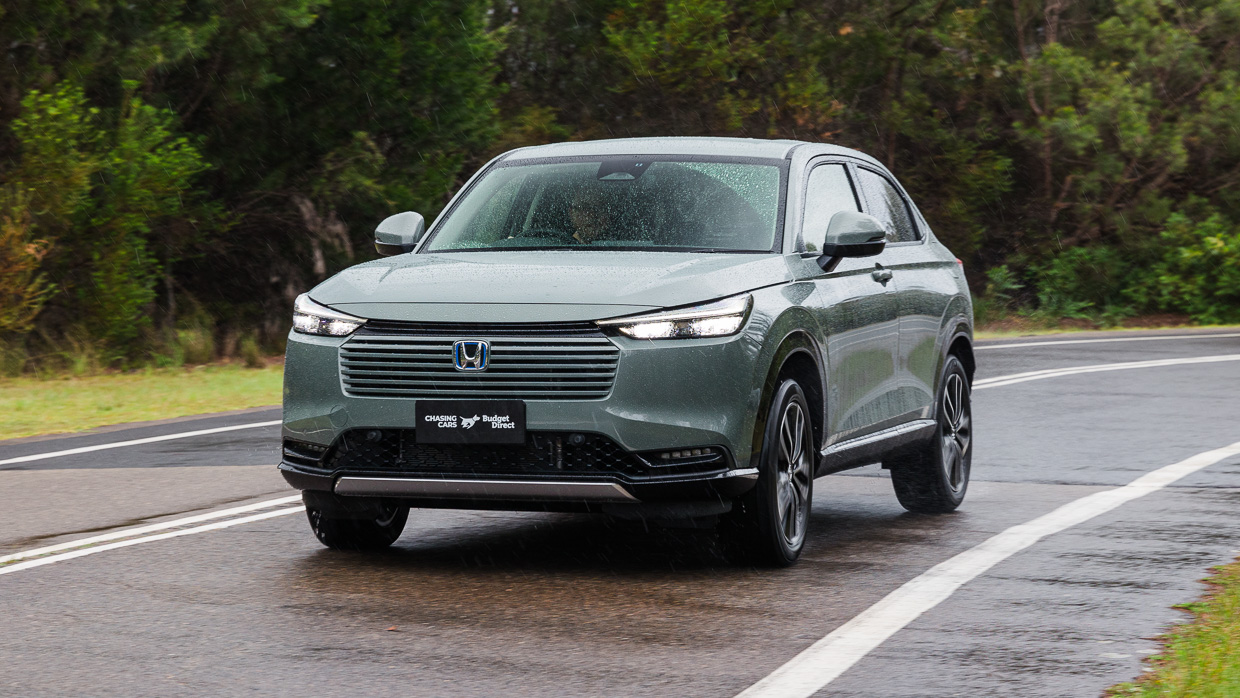
In an age of tightening cost-of-living pressures, Honda’s updated HR-V certainly offers a lot for not a ridiculous sum of money.
The HR-V is comfortable, fuel efficient, quiet and fun-to-drive, as well as being decently practical.
Despite its handy magic seat configuration, the HR-V still only offers seating for four, which is a bit odd in this segment.
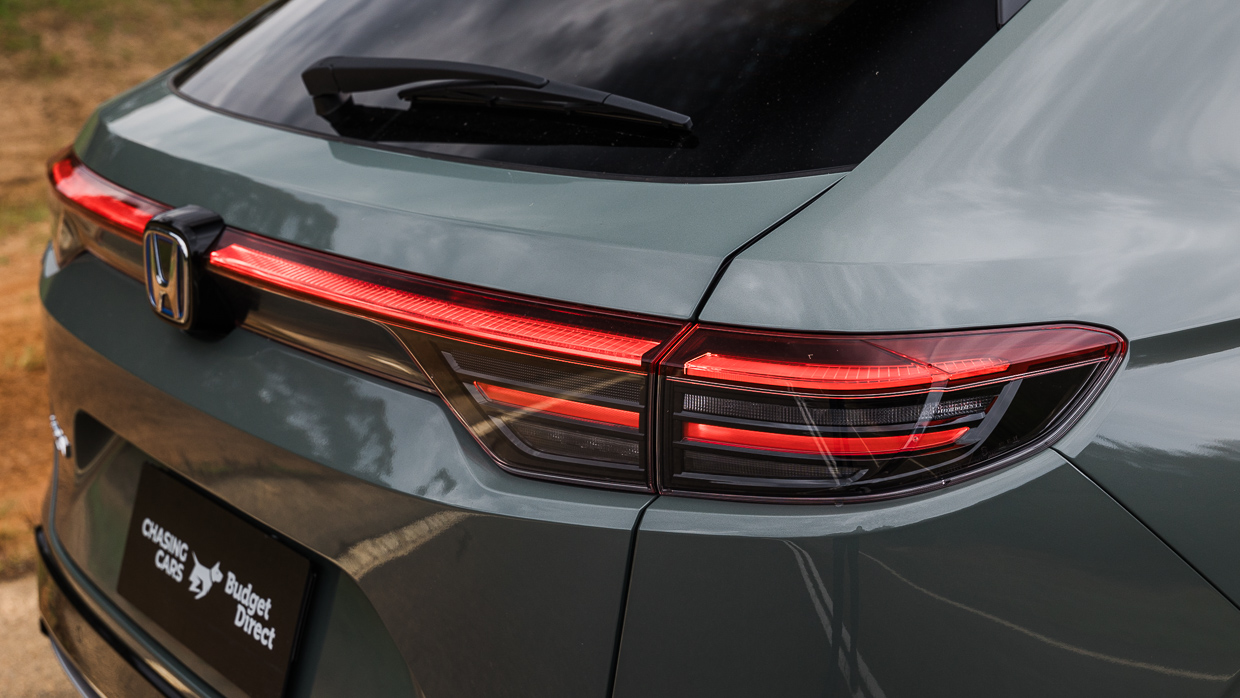
And while ANCAP ratings aren’t the be-all-end-all, some missing safety features leading to a four-star result in 2022 sets the model back slightly from the competition.
All up, the Honda is a bit of an underdog choice, and despite a flaw here and there, it’s a solid and dependable package for the outlay. .
To be honest, the HR-V should sell 5000 units more than what it does, but it turns out that knocking the likes of MG, Toyota and Hyundai from their lofty perches is going to be a lot harder of a task.
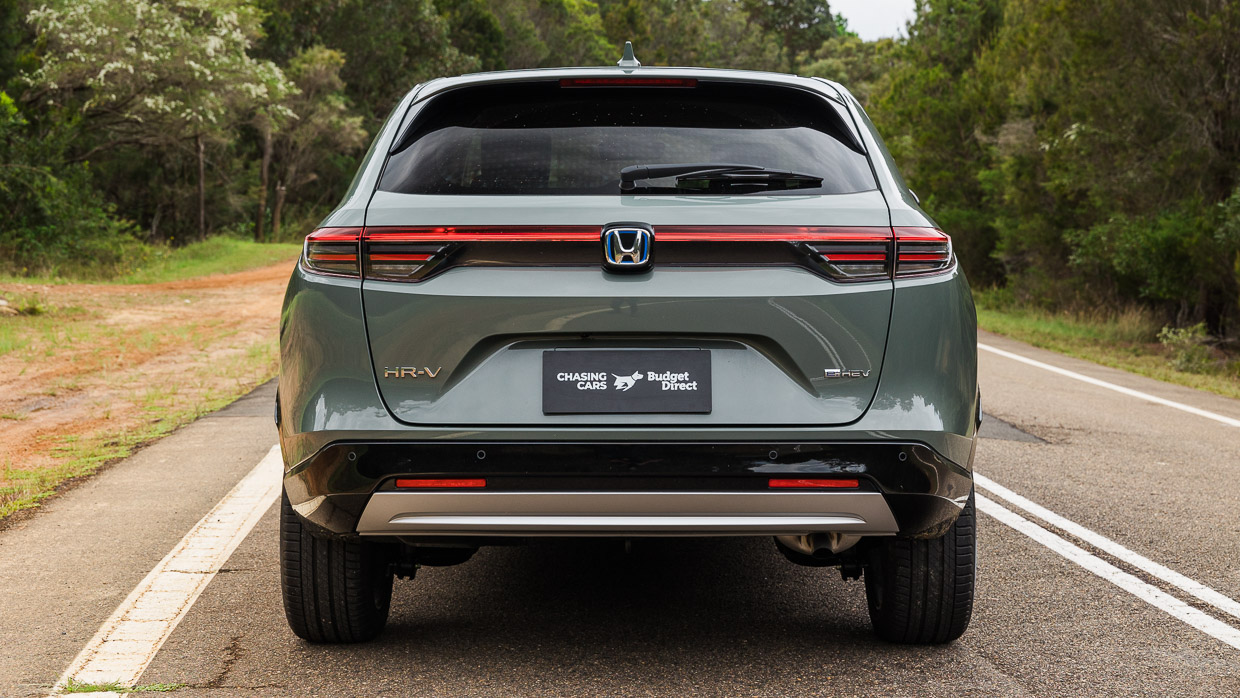
For the mainstay Japanese automaker, to do so would be a mammoth undertaking.
It’s possible, but the brand will need to be on alert for new Chinese automakers coming in thick and fast.
For now, the Honda HR-V, just needs to watch its back.
Key specs (as tested)
About Chasing cars
Chasing Cars reviews are 100% independent.
Because we are powered by Budget Direct Insurance, we don’t receive advertising or sales revenue from car manufacturers.
We’re truly independent – giving you Australia’s best car reviews.
The estimate provided does not take into account your personal circumstances but is intended to give a general indication of the cost of insurance, in order to obtain a complete quote, please visit www.budgetdirect.com.au. Estimate includes 15%^ online discount.
^Conditions Apply
Budget Direct Insurance arranged by Auto & General Services Pty Ltd ACN 003 617 909(AGS) AFSL 241 411, for and on behalf of the insurer, Auto & General Insurance Company Limited(ABN 42 111 586 353, AFSL 285 571).Because we don’t know your financial needs, we can’t advise you if this insurance will suit you. You should consider your needs and the Product Disclosure Statement before making a decision to buy insurance. Terms and conditions apply.
Indicative quote based on assumptions including postcode , 40 year old male with no offences, licence suspensions or claims in the last 5 years, a NCD Rating 1 and no younger drivers listed. White car, driven up to 10,000kms a year, unfinanced, with no modifications, factory options and/or non-standard accessories, private use only and garaged at night.
^Online Discounts Terms & Conditions
1. Discounts apply to the premium paid for a new Budget Direct Gold Comprehensive Car Insurance, Third Party Property Only or Third Party Property, Fire & Theft Insurance policy initiated online on or after 29 March 2017. Discounts do not apply to optional Roadside Assistance.
2. Discounts do not apply to any renewal offer of insurance.
3. Discounts only apply to the insurance portion of the premium. Discounts are applied before government charges, taxes, levies and fees, including instalment processing fees (as applicable). The full extent of discounts may therefore be impacted.
4. We reserve the right to change the offer without notice.